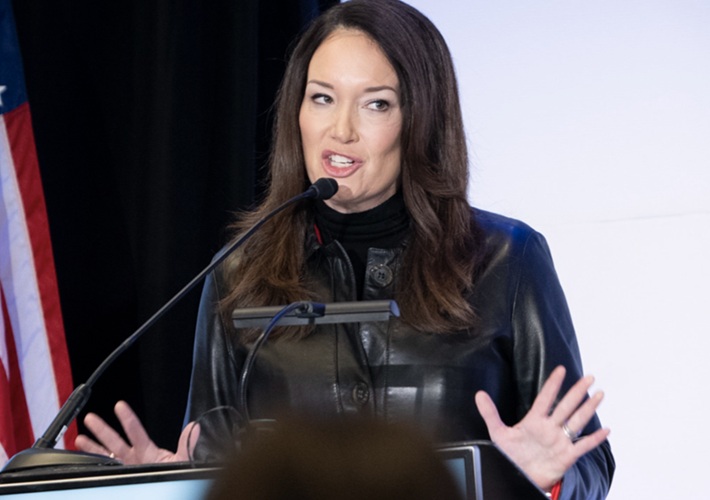(Crankers) U.S. Department of Agriculture Secretary Brooke Rollins says that every American receiving SNAP benefits will soon be required to reapply, marking a major shift in how the nation’s largest food-assistance program is managed. The announcement came during an interview on November 14, where Rollins outlined a new effort to tighten eligibility oversight and address what the administration describes as misuse and outdated records within the program.
Rollins said the USDA intends to require “everyone” on SNAP to submit a new application so the agency can verify that all current recipients still qualify. Speaking about the plan, she emphasized that benefits should go only to people who are “vulnerable and can’t survive without it,” and suggested that current enrollment records may include individuals who should no longer be receiving aid. She did not provide a timeline for when the requirement would begin or details on how the reapplication process would work.
The comments come while SNAP, which assists roughly 42 million Americans nationwide, is already under heightened tension due to the ongoing government shutdown. Earlier this month, the USDA ordered states to reverse certain November SNAP payments after the Supreme Court paused a lower-court ruling that would have required full benefits to be issued during the shutdown. The agency said those early payments were “unauthorized” under the temporary stay, adding another layer of complication for states managing benefits during the funding freeze.
According to Politico, the reapplication requirement is part of a broader USDA effort to root out what officials argue are “improper payments,” including cases where benefits are still being disbursed to deceased individuals or accounts that haven’t been updated in years. Rollins framed the effort as protecting taxpayer money while ensuring food-assistance resources remain available for people who truly need them.
But anti-hunger advocates and policy analysts say a blanket requirement could create steep administrative hurdles. SNAP already has built-in recertification rules, with recipients required to periodically update income information and household details. Requiring all 42 million recipients to reapply at the same time could potentially overwhelm state agencies, delay benefits, and lead to eligible people temporarily losing access to food assistance.
There are also legal and procedural questions. It’s not yet clear whether the USDA can unilaterally impose a nationwide reapplication mandate without congressional action. Rollins did not clarify whether the new process would replace existing state-level recertification cycles or simply add another layer on top of them.
The announcement lands at a politically sensitive moment. The SNAP program has been at the center of multiple disputes during the shutdown, including debates over whether the federal government can legally issue full benefits without appropriations. With millions of low-income households depending on the program for food security, any changes, especially ones involving mass reapplications, will be closely watched.
For now, recipients, states, and advocacy groups are waiting for concrete details. The USDA has said more information will be released once the agency finalizes its plan, but a timeline remains uncertain.


